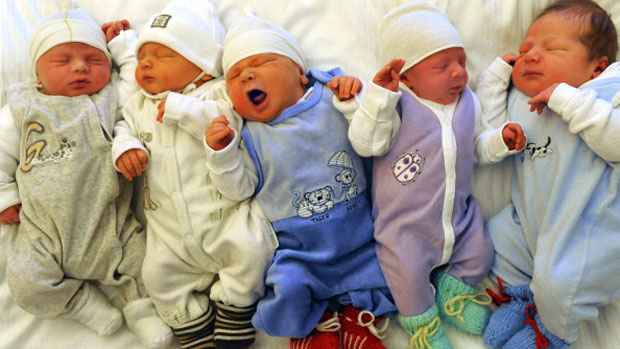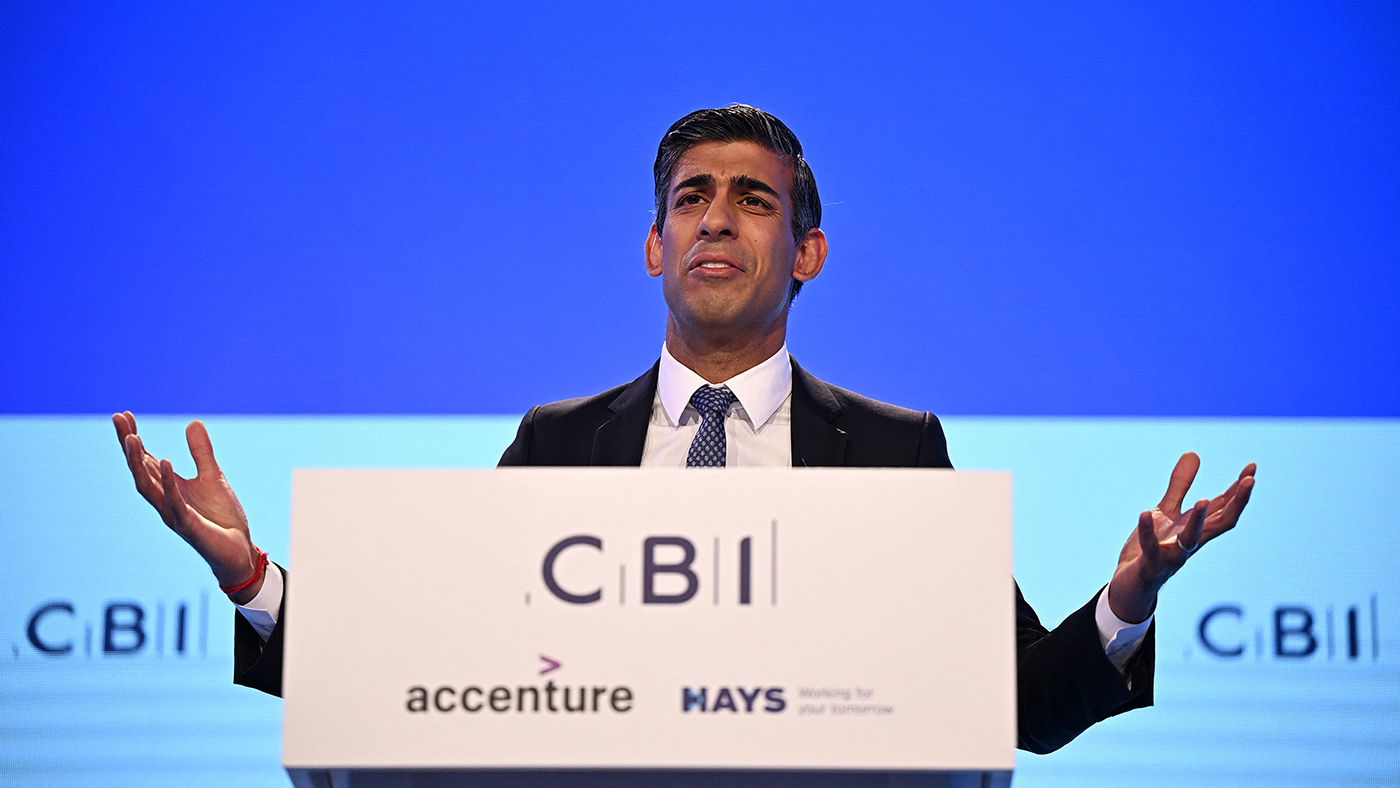The baby shortage: how it could affect the UK’s future economy
Merits of ‘liberal pronatalism’ should be considered, a think tank study has said

A free daily email with the biggest news stories of the day – and the best features from TheWeek.com
You are now subscribed
Your newsletter sign-up was successful
An ageing population and an “alarming” fall in fertility rates could lead to future “economic stagnation” for the UK, a think tank has warned.
In a report published today the Social Market Foundation (SMF) said Britain risks economic damage because falling fertility rates will deepen the “baby bust” and the long-term trend of people not having as many children could leave the UK with “fewer workers, a weaker economy and unsustainable public finances”.
The birth rate has been “falling dramatically” and the UK faces a “population crisis”, Carly-Emma Leachman said in The Conversation in 2019 – a year when the birth rate in England and Wales was the lowest it had been since records began.
The Week
Escape your echo chamber. Get the facts behind the news, plus analysis from multiple perspectives.

Sign up for The Week's Free Newsletters
From our morning news briefing to a weekly Good News Newsletter, get the best of The Week delivered directly to your inbox.
From our morning news briefing to a weekly Good News Newsletter, get the best of The Week delivered directly to your inbox.
Birth rates peaked in 1964 when the number of children per woman averaged 2.93, The Guardian reported. And in 2020 it was 1.58 – well below the 2.1 needed to keep the population rate stable. In Scotland the rate was even more pronounced at 1.29.
There had been predictions that the March 2020 lockdown could increase birth rates in the UK. However, Covid restrictions did not lead to a baby boom and the total fertility rate in England and Wales for 2021 could end up being the lowest ever recorded, Sky News reported.
Pronatalism: ‘a discussion we should not duck’
In its study – titled Baby Bust and Baby Boom: Examining the Liberal Case for Pronatalism – the SMF found that, at present, there are a little under three over-65s for every ten workers. By the middle of the next decade that ratio will rise to 3.5 and by the 2060s the number will be nearer four. Meanwhile, by 2050 a quarter of Britons will be aged 65 and above, up from a fifth today.
A free daily email with the biggest news stories of the day – and the best features from TheWeek.com
“This combination of a lower share of the population in work and a higher share in need of economic support clearly has a negative effect on the productive capacity of the economy,” the SMF said.
Scott Corfe and Aveek Bhattacharya, authors of the study, argue that the long-term outlook means UK policymakers should consider the merits of “liberal pronatalism”. This is the policy or practice of encouraging having children, especially through government support of a higher birth rate, The Guardian said.
“The question of whether the government should intervene to try and increase the birth rate is clearly a sensitive topic that must be delicately handled,” said Bhattacharya, chief economist at the SMF. “However, given the alarming fall in fertility rates, and the risks that population ageing poses to our social and economic wellbeing, it is a discussion we should not duck.
“Many other liberal democracies are exploring the use of policies like cash payments to parents, more generous parental leave and cheaper childcare to make it easier for those that want children to have them. Here in the UK we should consider the merit of these policies – not least because they would bring many other benefits to parents, children and wider society.”
-
 Political cartoons for February 19
Political cartoons for February 19Cartoons Thursday’s political cartoons include a suspicious package, a piece of the cake, and more
-
 The Gallivant: style and charm steps from Camber Sands
The Gallivant: style and charm steps from Camber SandsThe Week Recommends Nestled behind the dunes, this luxury hotel is a great place to hunker down and get cosy
-
 The President’s Cake: ‘sweet tragedy’ about a little girl on a baking mission in Iraq
The President’s Cake: ‘sweet tragedy’ about a little girl on a baking mission in IraqThe Week Recommends Charming debut from Hasan Hadi is filled with ‘vivid characters’
-
 Britishvolt: how Britain’s bright battery hope was zapped
Britishvolt: how Britain’s bright battery hope was zappedfeature Battery-making startup’s demise ‘has thrown up tales of reckless spending’ and incompetence
-
 Sam Bankman-Fried: the arrest of the disgraced crypto crusader
Sam Bankman-Fried: the arrest of the disgraced crypto crusaderfeature The founder of the failed crypto exchange FTX was arrested on Monday
-
 The UK’s migration ‘surge’ examined
The UK’s migration ‘surge’ examinedfeature 1.1 million people migrated to the UK last year, according to the latest ONS data
-
 Why UK companies are facing a dystopian, zero-growth future
Why UK companies are facing a dystopian, zero-growth futurefeature In prioritising stability, the Treasury risks ‘stifling enterprise and entrepreneurship’
-
 UK builders: drawing a line under the cladding crisis?
UK builders: drawing a line under the cladding crisis?feature Michael Gove’s threat to builders may be paying off
-
 Travel is back: is the UK aviation industry ready for the big take-off?
Travel is back: is the UK aviation industry ready for the big take-off?feature After two years of chaos caused by Covid-19, airports and airlines are now hit by a staffing crisis
-
 National Lottery operating licence: and the winner is…
National Lottery operating licence: and the winner is…feature Camelot has ‘outlasted five prime ministers’, but following a hotly contested bidding process, it has finally been toppled
-
 Big brand boycotts in Russia: who is in and who is out?
Big brand boycotts in Russia: who is in and who is out?feature Hundreds of Western companies have pulled out of Russia, but some remain